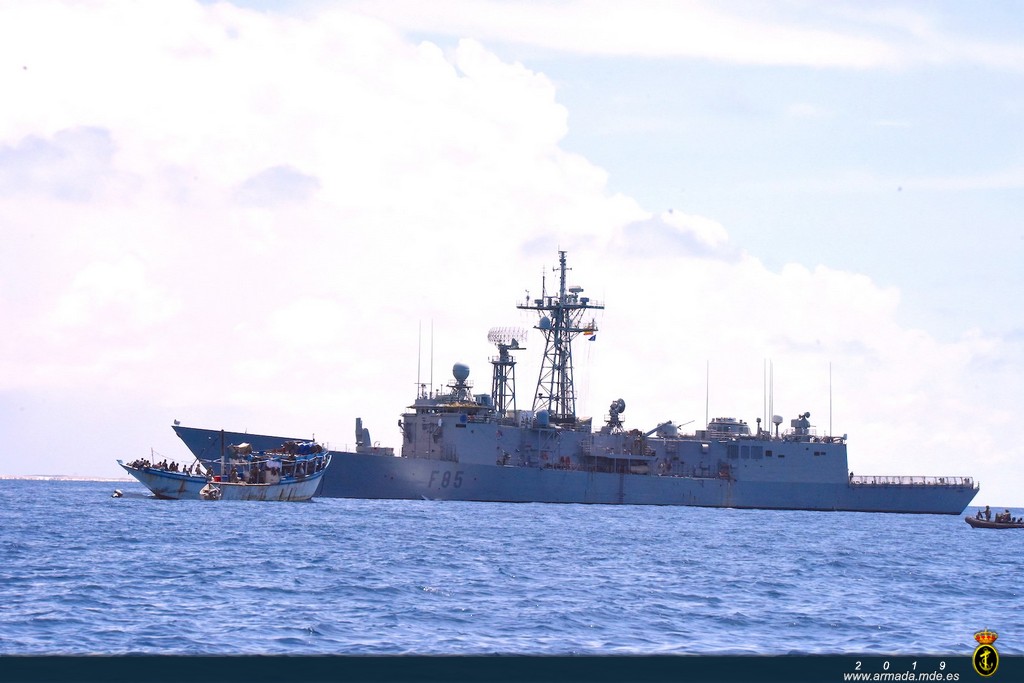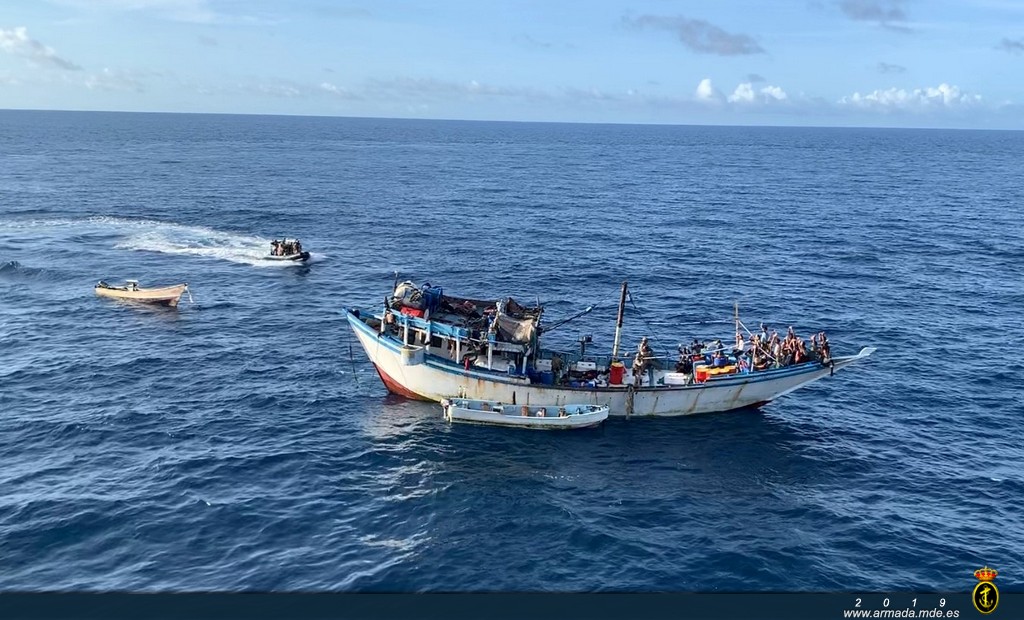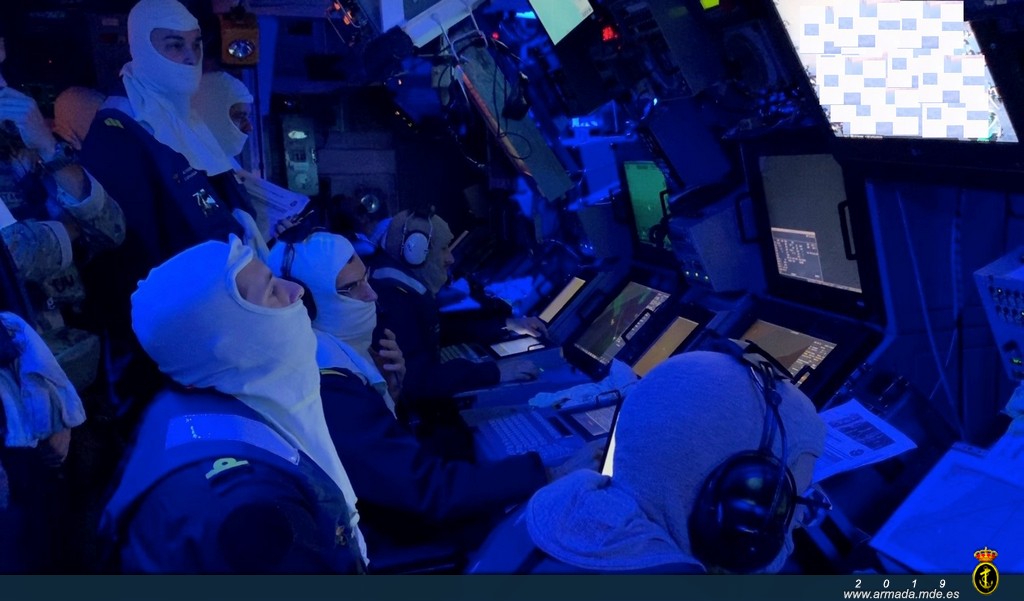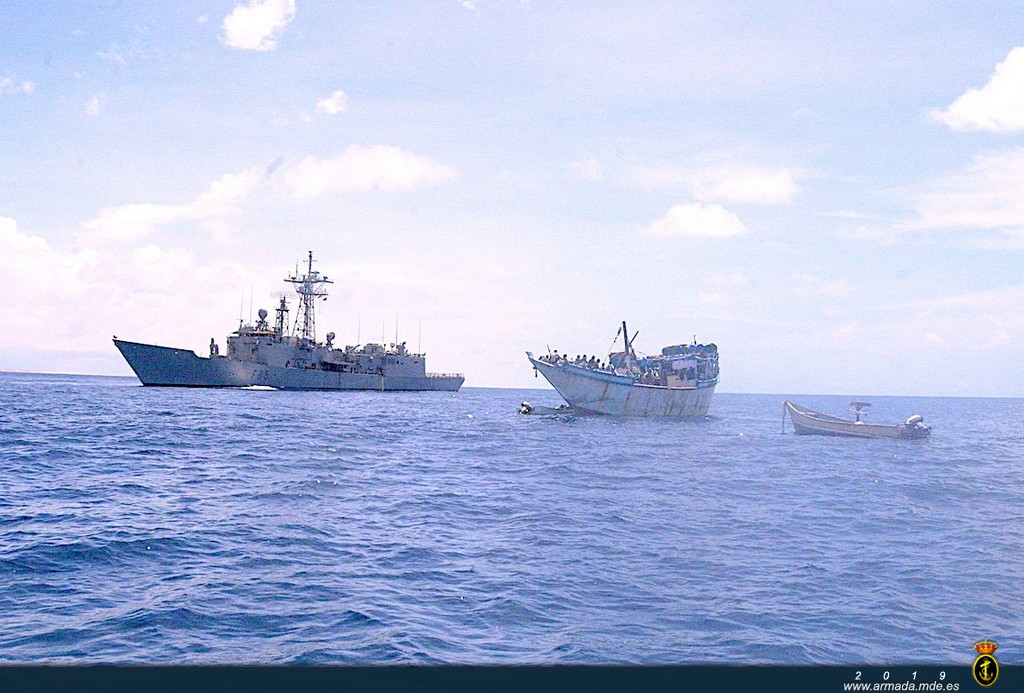Frigate ‘Navarra’ frees a Yemeni trawler hijacked by Somali pirates
Wednesday, April 24, 2019
The Spanish frigate ‘Navarra, flag ship of the counterpiracy operation ‘Atalanta’ in the Indian Ocean, intercepted and released on the morning of April 23rd a Yemeni trawler who had been hijacked by a group of Somali pirates four days ago.
The release was the result of a surveillance and monitoring operation led by the Spanish vessel after receiving previous information about a possible pirate attack on the Korean-flagged fishing vessel ‘Adria’ manned by Spanish sailors and the Spanish-flagged trawler ‘Txori Argi’. According to this information, both vessels had been attacked by a boat equipped with grenade launchers, but the private security team aboard the Spanish fishing vessel managed to repel the assault thanks to the BMP protection measures (Best Management Practices). Neither of the two ships were damaged.
Aware of the facts, the Force Commander, Rear Admiral Ricardo A. Hernández, ordered the frigate stationed in Mombasa to proceed, search and intercept the fleeing pirates. At the same time, he ordered a German maritime patrol aircraft P3-C to take off and fly over the area where the attacks occurred to try and locate the skiff and provide additional information to the frigate.
During the search the P3-C located a Yemeni dhow towing several skiffs. After verifying that the dhow coincided with one that had been hijacked four days earlier in Somali waters, the Force Commander guessed that the boat could be used as a mother-ship from which pirates could launch their attacks; and the existence of possible hostages was also assessed.
The information obtained by the German aircraft was subsequently confirmed by another Spanish MPA and with that information, the ‘Navarra’ managed to locate the fishing boat at dawn on the 23rd and verified that she was heading towards an area known for its pirate camps on the Somali coast.
After reaching the position of the dhow, the ‘Navarra’ remained undercover until a Special Naval Warfare team successfully conducted a boarding operation.
At this moment the Spanish military personnel are collecting evidence of the events that have taken place, so the operation is still open.
Operation ‘Atalanta’
The Spanish Armed Forces have participated in each and every one of the operations and training missions of the European Union (EUTM), thereby showing an undoubted European commitment with the CSDP.
The Navy participates in the EU-led Operation ‘Atalanta’, fighting piracy and helping to maintain security in the Gulf of Aden and Somalia, protecting World Food Program ships, the UN mission in Somalia (AMISOM), and maintaining the safety of shipping in the area. Likewise, the Spanish Navy contributes to the protection of Spanish trawlers fishing in those waters, to deter and prevent possible pirate attacks.
Spain has been contributing to the EU-led EUNAVFOR-ATALANTA operation from the very beginning with Air Force and Navy assets. This participation, together with the new ES-OHQ in Rota available to the EU, contributes to international stability and our national security and defense, which are the basis for progress and the development of our society. In addition, the Spanish Armed Forces have assumed command of the deployed Naval Force (FHQ) up to nine times.
Just three weeks ago the ‘Atalanta’ Operation Headquarters were transferred to Rota Naval Base (Spain) and since then, a Spanish admiral assumes command and warrants the continuity of the mission, assuming also the strategic control of any operation assigned by the European Union.
With the participation of our Armed Forces in the different missions led by the European Union, we aim to achieve greater awareness and support on the part of Spanish society, as an extension of the solidarity and values that our nation shares with our Allies, contributing in this way, to improve the concept of Defense.




 + 3
+ 3



